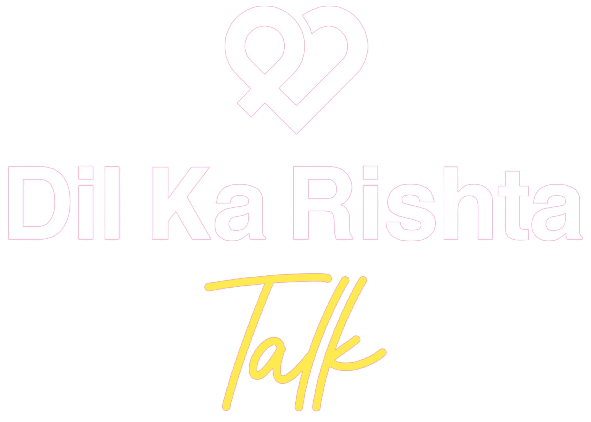Are you struggling to find a balance between your work and personal life? Do you often feel overwhelmed by the demands of your job, leaving little time for relationships and leisure activities? You’re not alone. Achieving a harmonious balance between our professional and personal lives is becoming more challenging in today’s fast-paced world. But with some practical tips and guidance, it’s possible to regain control and find the right equilibrium that works for you. In this blog post, we’ll explore why work-life balance is essential, share some useful strategies on how to achieve it, and discuss the benefits of maintaining a healthy balance between your career and relationships. So let’s dive in!
Defining work-life balance
Defining work-life balance is not as straightforward as it may seem. It’s a concept that means different things to different people, depending on their individual circumstances and values.
At its core, work-life balance refers to the ability to manage the competing demands of our professional and personal lives without feeling overwhelmed or burnt out. It’s about creating a healthy synergy between the two domains so that we can lead fulfilling and productive lives both at work and outside of it.
In practice, this means setting clear boundaries between your work time and your personal time. It involves prioritizing your tasks, delegating responsibilities where possible, and learning how to say no when you need to protect your downtime.
Work-life balance also means recognizing that there will be times when one domain requires more attention than the other. For example, during busy periods at work, you may need to put in longer hours or postpone social engagements temporarily. However, it’s essential not to let these imbalances become permanent fixtures in your life.
Ultimately, defining what work-life balance looks like for you is a highly personal journey that requires self-awareness and flexibility. By taking the time to explore what matters most in each area of your life and making conscious choices around how you spend your time, you can create a balanced lifestyle that works for you.
Why is work-life balance important?
Work-life balance is essential for maintaining good physical and mental health. Without it, individuals may experience burnout, stress, and decreased productivity in both their professional and personal lives.
When work takes over our life completely, we tend to neglect other aspects of our life that are equally important. Our relationships suffer as a result, leading to feelings of isolation and dissatisfaction.
Having a balanced life means being able to prioritize the things that matter most to us while still meeting work demands. It involves setting boundaries between work time and personal time with family or friends.
By achieving a healthy balance between work and personal life, one can improve their quality of sleep, reduce stress levels and enjoy more fulfilling relationships with loved ones.
Balancing work and relationships should be an important consideration for everyone who wants to lead a happy and successful life. By striving towards achieving this balance through small changes in daily routines such as taking breaks during the day or scheduling leisure activities regularly, one can live a fulfilling life without sacrificing either aspect too much.
Tips for achieving work-life balance
Achieving a work-life balance can be challenging, but it’s not impossible. Here are some tips that can help you find harmony between your professional and personal life.
1. Prioritize Your Tasks
Start by making a list of tasks you need to accomplish each day or week, then prioritize them based on their importance and deadline. This will help you focus on what matters most and avoid getting overwhelmed with too many things at once.
2. Create Boundaries
Setting boundaries is crucial in maintaining a healthy work-life balance. Learn to say no to requests that go beyond your working hours or interfere with your personal time.
3. Schedule Time for Yourself
Make sure to allocate time for yourself every day, whether it’s going for a walk, reading a book or simply relaxing at home without any distractions.
4. Communicate With Your Loved Ones
It’s important to communicate with your loved ones about your schedule so they understand when you’re available and when you’re not. This will help prevent misunderstandings and conflicts.
5. Take Advantage of Technology
Technology has made it easier than ever before to work remotely or stay connected with loved ones from anywhere in the world – use this flexibility wisely!
By implementing these tips into your daily routine, achieving a balanced life becomes more manageable!
The benefits of having a balanced life
Having a balanced life means that you’re not just focused on one aspect of your existence. You’re giving equal attention to all the areas of your life, whether it’s personal or professional. There are several benefits to having a balanced life that can make a significant impact on your overall well-being.
Firstly, when you have balance in your life, you’ll feel less stressed and overwhelmed. It allows you to take a break from work and other responsibilities and focus on things that bring joy and happiness into your life.
Secondly, having balance in your life can lead to improved relationships with family and friends as well as colleagues at work. When you prioritize both aspects of your life equally, there is no need for either side to suffer.
Thirdly, finding harmony between work and personal time leads to increased productivity at work since taking breaks helps refresh our minds leading us back energized for better output.
Lastly but not least important is the fact that balancing different aspects of our lives makes us more resilient individuals capable of bouncing back from challenges in any area of our lives be it personal or professional.
In summary having balance enables an individual lead richer fulfilling lives by ensuring they give their best effort towards everything without neglecting anything else this ultimately leads them down the path towards success in every sphere!
How to know if you’re out of balance
It’s not always easy to recognize when you’re out of balance between your work and personal life. Here are some signs that may indicate you need to make some changes:
Firstly, if you find yourself constantly working overtime or bringing work home with you, it might be time to reevaluate your workload and set clear boundaries. Similarly, if you feel like you never have enough time for friends or family, it could be a sign that work is taking up too much space in your life.
Secondly, physical symptoms such as headaches, fatigue or insomnia can also be an indication of imbalance. Stress caused by long hours at work can take a toll on our bodies and leave us feeling drained.
Thirdly, if hobbies or activities that used to bring joy now feel like obligations or burdensome tasks on your already busy schedule, this could also mean that there needs to be more balance.
Keep in mind the impact of technology on our lives. If emails and notifications from work disrupt family dinners or intimate moments with loved ones regularly – perhaps it’s time to unplug during certain times of the day!
Remember: finding balance isn’t about perfection but rather creating harmony between what matters most!
Conclusion
In today’s fast-paced world, it can be challenging to manage both our professional and personal lives. However, finding a balance between work and relationships is crucial for our overall well-being.
By defining what work-life balance means to us, understanding why it’s important, and implementing tips for achieving harmony in both areas of our lives, we set ourselves up for success. Benefits such as reduced stress levels, increased productivity at work, stronger relationships with loved ones, and improved physical health are just some of the rewards that come with achieving a balanced life.
It’s essential to recognize when we’re out of balance by paying attention to signs such as burnout or neglecting important relationships. By taking action early on in these situations and reassessing our priorities regularly, we can maintain equilibrium in all aspects of our lives.
Remember that achieving a balanced life takes time and effort but is worth the investment. With self-awareness and consistent practice using the tips outlined above like setting boundaries around your work schedule or prioritizing quality time with family members – you’ll be able to find harmony between your professional career goals while also nurturing meaningful relationships!














